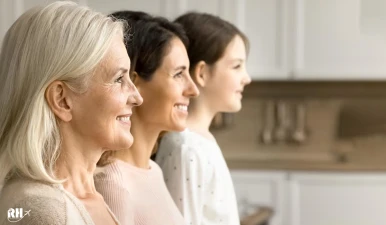The best age for egg donation; what age range has the highest chance of success?
Fertility Treatment
Today, no couple deals with fertility issues for too long anymore. Many types of treatments are available to help couples dealing with infertility, from hormone therapy and ICSI to IVF and egg donation. IVF with donor eggs has been invented to help women who cannot produce healthy eggs experience pregnancy and become mothers. Egg donation is an act of kindness, but in most cases, donors receive financial compensation.
A donor’s age directly affects both the number and quality of donated eggs, so choosing a young, healthy donor can increase the chances of IVF. In this article, we have explained the best age to donate eggs, why the donor’s eggs matter, and the other qualifications she must meet.
Why Is the Donor’s Age Important?
Women are born with a fixed number of eggs (around 300,000 to 400,000 at puberty). In each period, they lose more than 1,000 immature eggs, so their ovarian reserve diminishes over time. In addition to the number of eggs decreasing, the egg’s quality also reduces with age; therefore, the chance of a successful pregnancy is lower in women of a higher age.
Since the quality of eggs has a direct effect on IVF results, the donor’s age is very important. That is why fertility clinics set age limits for egg donors.
/22_1761555117_large_1762673207_large.webp)
What Is the Best Age to Donate Eggs?
Most fertility specialists believe that the best age to donate eggs is between 20 and 30 years old. At this age, the body responds better to the hormonal medications, and eggs have the highest quality. Also, recovering from the egg retrieval procedure is easier when the donor is in her early 20s.
Some clinics may accept donors up to age 35, but in these cases, she must be examined carefully to make sure that her eggs have an acceptable quality. Usually, they take ovarian reserve tests (transvaginal ultrasound), hormone tests, and genetic screening before the procedure begins.
Why Should the Egg Donor Be Between 20-30 Years Old?
The quality of eggs is not the only reason the donor should be between 20-30 years old. The following factors also show why the 20s are the best time to become a donor:
- Ovarian reserve (the number of remaining eggs in the ovaries) and egg quality are at their highest levels during this time.
- The risk of chromosomal abnormalities in eggs is lower.
- Eggs have a higher chance of being fertilized through IVF.
- Women in this age range experience fewer side effects from ovulation induction drugs.
- The risk of ovarian hyperstimulation syndrome (OHSS) is lower.
Other Reasons for Donor’s Age Limits
In Iran and many other countries, legal and ethical considerations are other factors that force clinics to set an age limit for donors. For example, the donor must undergo the treatment willingly and without any pressure.
Although women under 20 have healthy ovaries and high-quality eggs, they may not be emotionally ready for what happens after donation. Therefore, the clinics mostly choose donors above 20 to prevent donors’ physical and mental issues.
Other Factors that Egg Donors Must Have
Age is not the only requirement for becoming an egg donor. Women who volunteer must take multiple physical and psychological tests to be approved by a specialist. The important factors they must have include:
- Being physically and mentally healthy
- Having no history of genetic, viral, or chronic illnesses
- Not being addicted to drugs or alcohol
- Having a healthy body mass index (BMI)
- Having a regular period and ovulation pattern
- Having no criminal record
A Quick Review
Egg donation is one of the advanced methods of fertility treatment that helps infertile women become mothers. In this technique, the specialists collect healthy and mature eggs from donors’ ovaries and use them in IVF. To be approved as a donor, the volunteers must be within the ideal age range, i.e., 20 to 30.
In some clinics, women up to age 35 may also be accepted, only if they meet other health and medical requirements. In addition to age, donors are tested for their mental and general physical health, reproductive health, and genetic background.
Contact us for a free initial consultation about Egg donation
FAQs
What is the best age to donate eggs?
The best age for egg donation is between 20 to 30 years old. Note that some clinics may accept donors up to age 35 if their test results are satisfactory.
Can women under 20 donate eggs?
In many countries, no! Egg donation is not recommended for women younger than 20 due to legal, medical, and ethical reasons. To be clearer, their reproductive system may still be developing, and the process can have physical or emotional risks for them.
Does younger age always mean better egg quality?
In most cases, yes. Eggs have a higher quality when the woman is in her 20s. But unfortunately, the number and quality of eggs decrease as they age.
What are the risks if the donor is above 35?
The egg quality in donors above 35 is lower, so the IVF might fail. Also, the medications have more negative effects on such women, and the egg retrieval procedure might be more challenging for them.


 WhatsApp
WhatsApp
 Telegram
Telegram
 Facebook
Facebook
 Email
Email

No reviews
Your comment